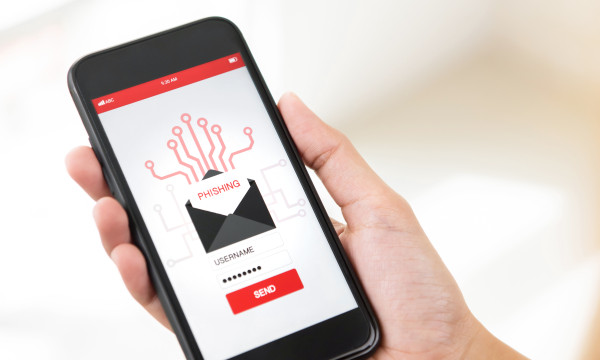Retirement Chat: FAQs
Audio Transcription:
Caitlin
Welcome to the UBT Retirement Chat. I'm Caitlin Moore, Retirement Educator, and I'm here with the education team. We have Garrett Sutton, Geoff Langenberg, and our manager Jason Hemenway. Thanks for being here today, guys.
Group
You bet. You’re welcome. Thanks for having us.
Caitlin
Our job at UBT is to educate folks on their retirement plan, and we have put together a couple of frequently asked questions that we receive almost daily. Alright, so I'm going to start with Garrett. One of our most asked questions is, “how much do I need to save for retirement?” And this tends to be a very loaded question and has over time evolved into be a very individualized question. So can you explain to us the answer to this?
Garrett
Yeah, so that is a loaded question, like you said, and it's a really understandable question. I mean, it's really hard to know exactly how much we're going to need in retirement and how much we need to save to get to that goal. Especially when retirement can be multiple years down the road, knowing kind of what our expenses are going to look like in retirement. So again, totally understandable that we may not know what our starting point needs to be, but a good goal to start with from the experts is going to be trying to save 12 to 15% of your total income each year. And that is going to include any employer contributions that you're receiving, so it'll include your contributions out of your paycheck that you are making. Also any employer matching contributions, employer profit sharing, or non-elective contributions, you would add all of those up. And then hopefully that would be, that total contribution rate would be, somewhere in that 12 to 15% range.
Jason
You know, and one of the things that, sorry to interrupt you, but one of the things that we talk about too is, as educators, it's really about kind of a three-step process, right? You know, we just want people to get started. We don't necessarily expect them to start out at 12 to 15%. We just want them to get in, see how it affects their paycheck, and it will grow. It's better than nothing, right? And then you know, if their company offers a match to make that second step to be try to take full advantage of those matching dollars and then of course incrementally step up that 1% to, to try to get closer to that 12 to 15%. I don't think we ever ask anybody that. We expect people to do it right away. Right? Isn't that what your experience is, Garrett?
Garrett
Yeah, absolutely. I mean, we all have finite amounts of money coming into our budgets and competing financial obligations. So, you know, we could spread ourselves thin to some extent. So it's not always possible or feasible to, you know, start out with a contribution rate that'll get you into that 12 to 15%. And that is absolutely fine. Like you said, the first step here, the biggest step is just to get started, get your feet wet, start to understand a little bit of what this process is, see what it's like to have money come out of your paycheck, get that money invested. And then going from there, like again, you mentioned the next goal is trying to maximize the free money coming from your employer through that employer match. So bumping up that contribution rate to maximize those free dollars. And then again, third and last goal would be to get to that 12 to 15% range. And I guess I should say that's not necessarily the final goal because that is an average. Some people are going to need more, some people might need to save less. So as you know, you get to that 12 to 15% range, maybe that's a time to then sit back, reassess, and see if you need to contribute more in order to fund whatever lifestyle you're looking for in retirement.
Geoff
That’s a great point. And the other question that you typically get is, what's the magic number? How much do I need to save? And as educators, I think we'd all agree that there is no magic number. Everybody's going to be a little bit different based on their goals when they retire. Some people are going to want to buy that RV, buy that home in Florida, or travel the world. Obviously, those things are going to cost a little bit more money, whereas somebody that maybe retires and just kind of hangs out at home budgets are going to be a little bit different. So just a real, a different alternative to look at is maybe try saving anywhere from 80 to 100% of your working income to float you through your retirement years. Ideally, for example, if you made $40,000 a year and you were living comfortably, that was paying your bills, making ends meet, ideally you want to be able to afford to float you through your retirement years by having $40,000 to supplement that income each year during your retirement. I mean, that makes sense, right?
Jason
It does, yeah.
Garrett
Yes. Looking for that 80 to 100% of your working income so that you can maintain your lifestyle in retirement as you maintain that same lifestyle in retirement as you had while you were working. Basically, saying roughly you're going to need the same amount each year in retirement that you need during your working years.
Jason
Yep, that makes sense. It's, not just that whole, “do we need million dollars?” I mean, we all have heard that before too, is I need a million. Well, we don't know. I mean, your guys' examples are perfect. That's more personalized.
Garrett
For sure, yeah. Some people could spend a million dollars in five years and some people could spend it or not spend it in 100 years, right? It just kind of varies person to person.
Jason
Exactly.
Caitlin
Alright, well, thanks guys. Let's move on to another question that comes up a lot and it's becoming a more popular option within the retirement plan, and that's the difference between pre-tax contributions or Roth contributions. So in the last several years, a lot of companies have added Roth to their retirement plans because of the benefits it has for the participant. So I want to ask Geoff, can you go into some more details to explain the difference between pre-tax contributions and Roth?
Geoff
Yeah, so as you said, pre-tax — key word being tax there, right — so the goal should really be, you just want to pay the least amount as possible, right? We always want to pay less taxes. So you want to have that flexibility of being able to figure out when your money is taxed. So the pre-tax option, which Caitlin talked about, otherwise known as traditional, and that's because traditionally people have done it that way for a very, very long time. Pre-tax contributions mean it's the first thing out of your paycheck, it goes right into your retirement account. Then later on down the road when you retire or when you separate from service or whenever you decide to distribute these funds, you pay the taxes at that point when you take the money. You will also pay taxes on any gains or earnings, quote unquote, that you make off of your investment as well.
That brings me to the next point, which is the Roth contribution. Don't confuse this with a Roth IRA. A lot of times people hear the word Roth and they think Roth IRA, that's the first thing they think — that is not what this. This is a contribution, a Roth contribution, to your retirement plan, okay — to your 401(k), your 403(b), or your company-sponsored plan. Roth IRAs are set up outside of your plan with another firm or another provider. So, Roth contributions are after-tax, which means they're taxed up front when you put the money into your retirement account, and then when you withdraw the money later on down the road, well, you've already paid those taxes, so that part is done. I'd say probably the biggest kicker is, you do not have to pay any taxes on your gains as long as it is a qualified distribution.
And that's something that comes up when people ask questions about which is the right one and which is the wrong one? A qualified distribution is your first initial contribution to your Roth has to be held in the account for no less than five taxable years. That's the rule, okay? If you don't satisfy that rule, you kind of just eliminate the benefit of the tax-free gains because you don't get that benefit anymore.
So I get that question a lot, but another question I always get is, “which is the right one? Which is the wrong one? How do I know?” And I wish it was as simple as that. It's just really not a one-size-fits-all type of question. Everybody's a little bit different. You can do both, okay? So if you're not 100% sure on which one you want to do, or you should do, you can do a little bit of traditional, a little bit of Roth, and there's no problem with that.
And I would say the number one question that I would get or suggest to people is look at your time horizon and then maybe look at your tax bracket because you're making these decisions based off of assumptions. You're not basing this off of what's happening right now. You’re basing off of what you think is going to happen later on down the road. So your time horizon, if you are a younger investor, you may have a decent amount of earnings in your retirement account by when you retire. So it may be in your best interest to do a Roth contribution to not have to pay taxes on those gains. If you're getting closer to retirement, you may want to consider doing traditional contributions because maybe you don't have a decent amount of earnings in your account at that time.
And then your tax bracket — when we look at tax brackets, if you are a lower income earner, it might be in your best interest to do a Roth contribution to your retirement plan, as you can pay those taxes up front while you're in a low bracket. Because who knows, maybe if you play your cards right later on down the road, maybe you'll be in a higher tax bracket, or I don't know, at least in my experience, taxes don't typically go down a whole heck of a lot, they probably are going to go up. So it might be in your best interest to go that route as well. So depending on your tax bracket and your time horizon, maybe you just want to find just a little wiggle room between those two questions to kind of give you a good idea of what might be best for you. I don't know if any of you folks have any other suggestions on that. That's just my own personal experience when it comes to traditional versus Roth contributions.
Garrett
Yeah, one thing I would add is you know, there really isn't a right or wrong answer. I mean, like you said, Geoff, we're kind of making some assumptions, educated guesses, so you know, definitively we won't know what was, you know, the, the correct answer, so to speak. And what was going to come out numbers-wise, the best for us until we actually get there. Hindsight will tell us, you know, what that was based on the tax consequences that we have at retirement, but we don't really know what those are. Either way, traditional or Roth or a combination of both, you are saving for retirement using the tax advantages that the IRS is giving us — and that's the whole goal here. And so, you know, getting hung up on one versus the other, it is an important question, but the whole goal here is saving for retirement in a tax advantaged way, and you're accomplishing that through either type of contribution.
Jason
Yeah, and I think it's important that, as of today in 2023, that… if you're lucky enough to have your company putting in dollars into your account like a non-elective or, or a matching contribution, those are pre-tax dollars already. So you have a bucket of pre-tax dollars going into your account already. That's just something to consider if you're thinking about, “do I need a mix?” Well, have a mix if you did a Roth yourself, a Roth contribution yourself, and then of course you've got your company dollars being pre-taxed dollars as well. So that's something to consider as well.
Geoff
That's a good point. The last thing I'd say is that it's all modifiable. So most plans will allow you to make changes to whether you do traditional, Roth, or both. So don't feel like whichever route you go with, is that's the way you're stuck with, you can always make updates to that.
Jason
And I've had people, I don't know about you guys, I've had people tell me they didn't, they don't care about any of that. They just don't want to pay taxes in retirement. Yeah. And so that's how they go about choosing whether or not they want to do Roth contributions or not, right? I mean, it's like, “I don't care… that's all great information, but I just don't want to have to pay taxes in retirement, so I'm going to do the Roth contribution.”
Garrett
The peace of mind component.
Caitlin
Alright, well thanks for that answer. As we've heard, there are several things to consider during our working years, as we save for retirement. But there's another question we get a lot for folks that are closing in on retirement, and that's what options do I have for my retirement account after they're done working? Jason, can you go into a couple options folks have for their retirement account after they retire and maybe talk a little bit about what UBT does to inform folks on those options?
Jason
Yeah, absolutely. It's important to understand that, it does depend on the company, right? So the company, every retirement plan is set up, and we administer those plans based on how the company wants those plans set up. And so just in general (and again, as of today, 2023), if you have over $5,000 — again, keep in mind this might change — but as of today, if you have over $5,000 in your account, $5,000 or more, you can certainly, by IRS law, you can keep that in your account for as long as you want to. Also keep in mind though, you're not going to be able to add to it. So a 401(k), the only way to add to your 401(k) account or your 403(b) or whatever it is, your employer sponsored retirement plan, is through payroll deduction.
So that ends, obviously, with your employment. So keep that in mind too, that you can keep it where it is. You're just not going to be able to add to it at that point, it's just going to be continued to be invested, however you have it invested. And most plans allow you to change your investments whenever you want to. But again, it's, company-dependent as far as how your plan is set up. So that's one option, right? And so the other option, this is generally speaking, however your plan is set up, but if you have between $1,000 and $5,000 (or really $4,900 basically) then what happens is, unless you have elected something differently, unless you have gone in and said, “I don't want this to happen,” what will happen generally is that it gets pushed into an IRA. Correct, Garrett? I mean, you've worked with IRAs in the past, so is that generally how that works?
Garrett
Yes. You have any dollar amount or balance between $1,000 and $5,000 would get forced out into what's called an automatic rollover IRA. It's basically just keeping the tax considerations the same, if you have pre-tax dollars, it's going to move over to pre-tax IRA Roth dollars, over to a Roth IRA. And then it sits in a money market kind of just waiting there until you come to Union Bank and tell us what you want to do with that money.
Jason
Or whoever administers your plan, right? And we're coming from a UBT perspective, clearly.
Garrett
Sure, yes, but it will get forced out into a UBT IRA.
Jason
You’re right, yeah, the company, the plans that we administer…
Garrett
Assuming that your employer's plan is with Union Bank & Trust.
Jason
Thank you. So the other options, there was a couple more, but one of the other options is of course, if you have less than $1,000, typically speaking, you will have that cashed out and sent to… for UBT's purposes, we'll send it to whatever address that we have on file. You know, one thing to keep in mind too is that you typically have a 60-day, 90-day, 180-day window to make a decision. If you do not want to have that check cut to you and you want to roll it yourself into an IRA or you don't want that automatic IRA or the rollover as Garrett put it going into an IRA, you want to maybe move it to your new employer's plan. You can certainly do that.
There is typically, and I don't know exactly what the timeframe is, I think it changes per plan, but you know, it could be up to six months or whatever before you have to make a determination. So understand that, the options that I'm giving are based on the fact you have not made any determinations of what you want that to have happen to your account. And so and the other option of course, which we, you know, we can't legally give advice, but you know, certainly you can't cash it out. It's just not advised clearly you know, you're dealing with some tax consequences and certainly if you're under the age of 59 and a half, you'd also be dealing with that excise penalty tax of 10%. And so those are definite considerations to think about before you go ahead and just cash it out. We always say, you know, it's always better to, to roll that into an IRA or roll it into your new employer's plan you know, if possible. So if, if your new employer actually accepts that and offers that. So that is certainly an option as well. Is there anything else that I missed on that?
Geoff
I don't think so. The one thing I would say too is that, as Jason said, you know, those are complicated tax questions, so we always say if you have questions about that, contact your financial professional or a CPA if you have detailed questions. And then we have a ton of tools and calculators on the website that can kind of help you out with those kinds of questions as well.
Jason
So that's a great point. And the other point is, and I think to answer your question Caitlin too, is if the plan is administered by UBT, our client services department within UBT, they're going to send out information giving you all of your options based on whatever your account balance is on that day. So it's super-important to understand, you don't have to necessarily remember everything that I just said — because that's a lot of information — you're going to get information from UBT giving you all of your options, including contact information and our process for rollovers and withdrawals as well.
Caitlin
And the money just doesn't disappear if you don't do anything. That's a big one. I actually get that question a lot. If I don't do anything, I ignore the communication, what happens? We are going to roll it into an IRA if it is within those limits. It doesn't just disappear. Now, it's not invested maybe aggressively, anything like that, we're just kind of maintaining your balance for you. But we can track the dollars. It's still here. It doesn't disappear.
Jason
That's a really good point, Caitlin, that your money doesn't disappear, right? So just to recap, I think your original question was about, as you're getting closer to retirement — absolutely true, no doubt about that — but it's also sort of about, when you end employment with your current employer, too. It's one of my options when that happens, right? We at Union Bank, you use the word termination, but all that just means is it's your last day. So following your last day, you're going to get some information from Union Bank for instance. And those options, just to recap real quick: If you have over $5,000, you can leave it right where it is, right? If you have between $1,000 and $5,000, then it gets rolled into an automatic IRA, a rollover IRA is how that's put, right, Garrett? And if you have less than $1,000, then that's when we'll cut the check and send it to the address that we have on file.
Again, this is the assumption that you have not made an election yourself and done anything that those three things happen. And of course you could always cash it out. Obviously we can't, like I said, legally give you financial advice, but it's not recommended that you do so.
Caitlin
Well thanks, Jason, and thanks Jeff and Garrett for being here today to answer our questions. We'd love to continue having this conversation. So we will be back a couple more times this year to talk through popular retirement topics to help educate towards a financially healthy retirement.
---------------------------
Disclaimer
Please keep in mind that the information that was provided here is for informational purposes only. As educators we're able to give you education, we are not able to give you financial advice. This is strictly for your information only.
Investment products offered by Union Bank & Trust are not FDIC insured, are not guaranteed by any bank, and may lose value.
Learning Center articles, guides, blogs, podcasts, and videos are for informational purposes only and are not an advertisement for a product or service. The accuracy and completeness is not guaranteed and does not constitute legal or tax advice. Please consult with your own tax, legal, and financial advisors.
|




